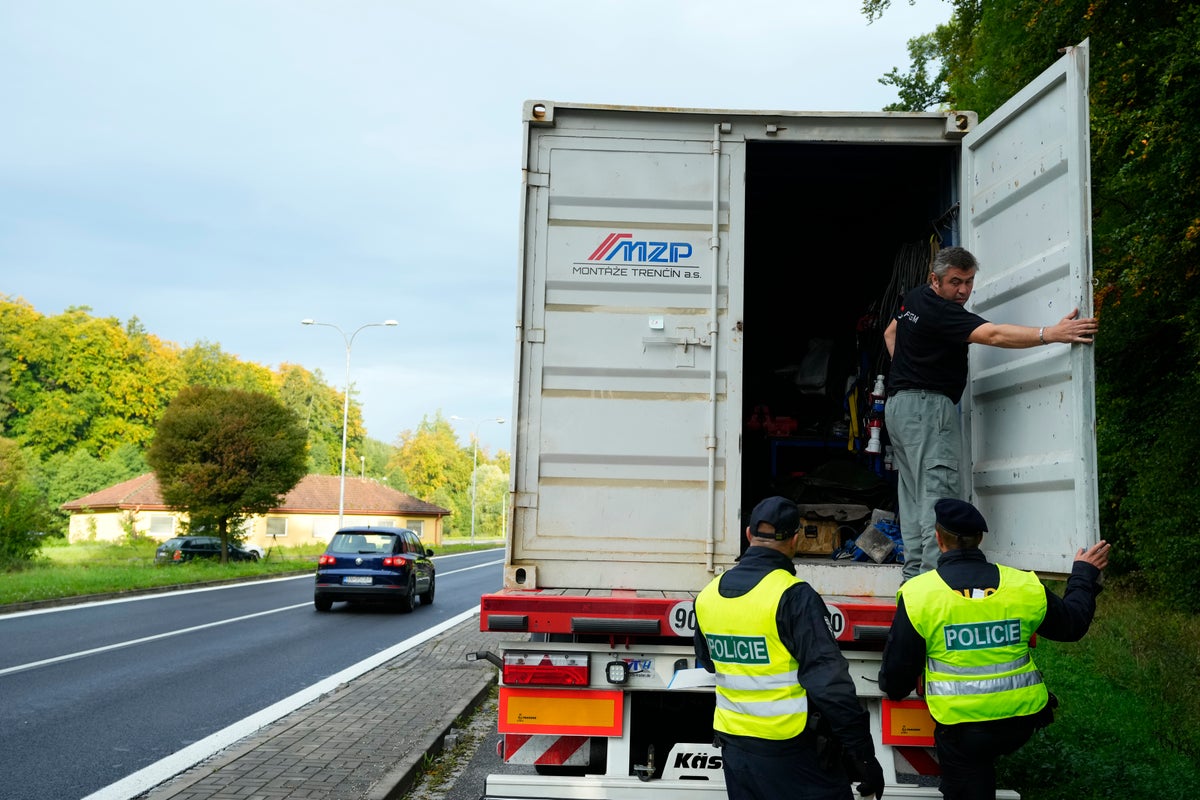
Czech police fired warning shots in the air before detaining the driver of a van carrying 15 migrants Thursday morning after the Czech Republic and Austria renewed checks at the border with Slovakia amid a new wave of migration.
Czech police reported traffic delays, especially for trucks, after the measure became effective on Thursday at 27 border crossings, while the Austrian authorities enforced it at 11 crossings.
The checks will be initially in place for 10 days.
Austria, the Czech Republic and Slovakia all belong to the European Union’s visa-free Schengen zone, where residents of member nations typically can cross borders without presenting passports or visas. Schengen countries have adopted temporary border controls in the past for various reasons, including to curb illegal migration and to prevent the spread of the coronavirus.
In the first eight hours of the checks, the Czech police said some 120 illegal migrants, including the 15 in the van, were detained on Czech territory, together with nine human smugglers.
“The goal isn’t to complicate the lives of the Czech and Slovak citizens,” Czech Interior Minister Vit Rakusan said after midnight at a border crossing. “The goal is only to make it clear to the groups of smugglers, who are the real criminals … that they have a barrier at the border.”
He spoke after Slovakia’s Prime Minister Eduard Heger criticized the move of its neighbor. Until 1992, they were one country, Czechoslovakia.
Rakusan said Czech officials will negotiate further steps with the authorities from other European countries. He said the Czech Republic, which currently holds the rotating EU presidency “will do the maximum to find a Europe-wide solution.”
Slovakia wants to help enforce the outer Schengen border between Hungary and Serbia to curb the flow of migrants. Interior Minister Roman Mikulec said if the talks with neighboring countries don’t result in a solution, his country will also launch border checks.
After Russia invaded Ukraine, the Czech Republic accepted some 430,000 Ukrainian refugees but Rakusan said the latest measure is dealing with illegal migration.
The Interior Ministry said the checks were necessary after authorities detained almost 12,000 migrants on Czech territory this year, most of them from Syria. That is more than the 8,500 seen during the previous massive migration wave in Europe in 2015, when the Czech Republic was not on the main route. Some 125 human smugglers have been arrested this year, a significant increase compared with the previous years.
The ministry said that the migrants have been using the Czech Republic as a transit country on their way mostly from Turkey to the West and don’t apply for asylum in the country.
Rakusan said that after his talks with German officials, “there’s, of course a threat” that neighboring Germany, a key trade partner for his country, will also start checks on the border with the Czech Republic.
“We do all we can to prevent that,” he said.
The Czech Republic, together with Hungary and Poland, refused to comply with a refugee quota program launched by the EU after well over a million migrants entered the bloc in 2015, most fleeing war in Syria and Iraq.







